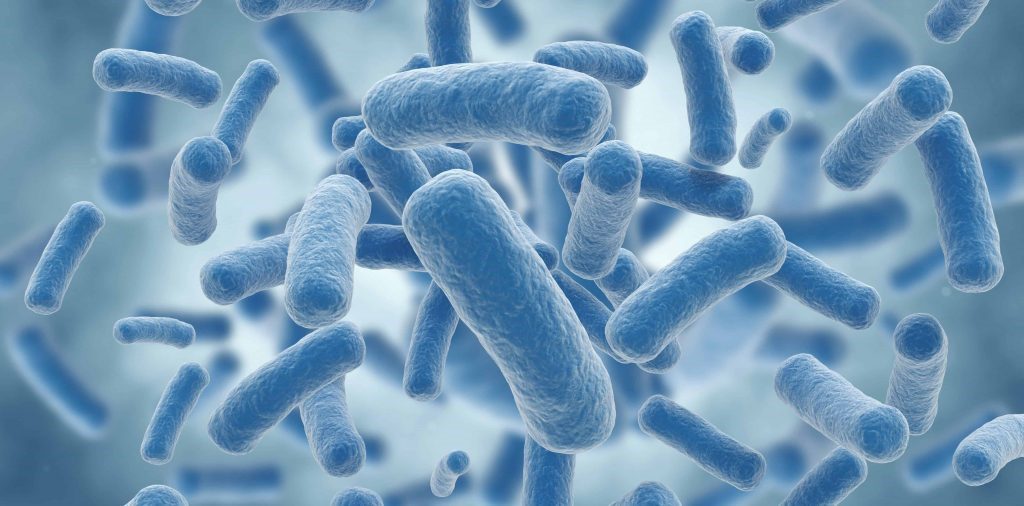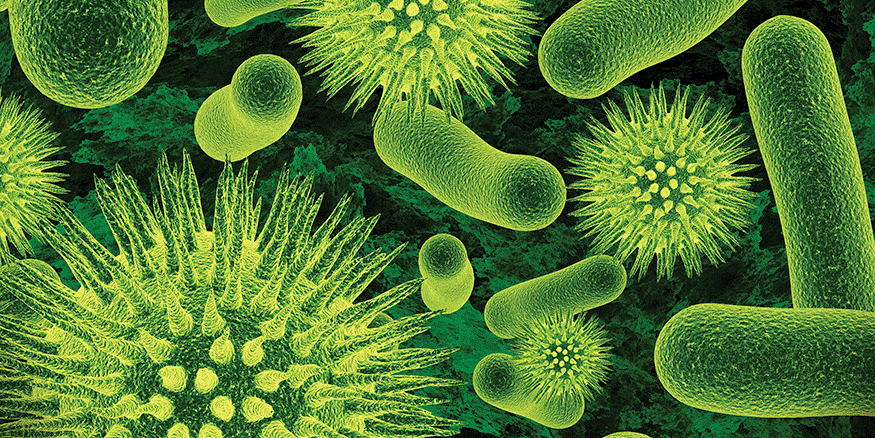Connie: My dear friends, it’s great to have you here with us this Saturday evening. In today’s episode, we will be talking about the beneficial effects of probiotics. To better explore this topic, we are glad to have invited our old friend, Dr. Leonard Hofstadter, who has been an editor of scientific journals for a long time. Thanks for being here, Dr. Hofstadter.
Dr. Hofstadter: Thank you for inviting me, Connie. Good evening, everyone. It is quite nice to see you again. I’m very excited to be here.
Connie: In the last episode, we discussed the immune system and gastrointestinal response to probiotics. We know that probiotics can affect the response of the immune system by stimulating some immune cells. In addition, probiotics can further inhibit the growth of pathogenic bacteria by producing low molecular weight compounds, such as organic acids and antibacterial high molecular weight compounds, so as to promote human health. We also discussed that the beneficial effects of probiotics on some diseases such as allergy and colitis can be attributed to their potential to enhance T lymphocyte production. Now let’s move on to today’s episode. Where would you like to start, Dr. Hofstadter?
Dr. Hofstadter: That was a great summary. Well, we all know that the main function of probiotics is to regulate the environment of the gastrointestinal tract. So they are generally used to treat various diarrhea, constipation, and abdominal pain. In addition, their therapeutic effects on antibiotic-related diarrhea and chronic diarrhea are very positive. In addition to affecting the intestinal tract, probiotics also have a good preventive and therapeutic effect on diseases of other systems. Why don’t we dive deeper into the relationship between probiotics and the immune response in humans.
Connie: Sounds good. How do probiotics modulate the immune response?
Dr. Hofstadter: Hmm, you may think probiotics only regulate the immune response of animals and humans at the intestinal mucosa level, but actually, they also regulate the immune response at the system level. For probiotic lactic acid bacteria to regulate their activities through the intestinal mucosal immune system, they must also interact with the normal intestinal flora and food intake. The interaction of probiotics with intestinal epithelial cells produces cytokines and chemokines that initiate immunomodulatory events.
Connie: How do probiotics help the intestinal immune system eliminate pathogens?
Dr. Hofstadter: It’s a good question, and many researchers are asking the same question. So several studies have been conducted to look for the answer. These studies show that a large number of lactic acid bacteria can remind the intestinal immune system, and then help to reject potentially harmful infectious microorganisms, which can be achieved by producing specific type A immunoglobulins or activating natural killer cells.
Connie: Besides what you just mentioned, are there other ways to regulate the immune response? For example, to stimulate other immune-related cytokines?
Dr. Hofstadter: Well, these probiotics do have other immunomodulatory effects, derived from their ability to increase the phagocytic activity of intestinal leukocytes, promote the proliferation of B lymphocytes, and increase the secretion of immunoglobulin A and G. Also, you know, probiotics can stimulate various cytokines, such as interleukin-2, interleukin-6 or tumor necrosis factor, as well as the general activation of B lymphocytes. The probiotics Lactobacillus casei, Lactobacillus rhamnosus, Bifidobacterium breve, Lactobacillus gasserii are some examples of this effect.
Connie: This is very fascinating, I mean, probiotics’ immunomodulatory properties. I was thinking, has their ability to treat immune diseases been evaluated?
Dr. Hofstadter: Definitely. The effectiveness of probiotics in preventing or treating inflammatory diseases is currently being evaluated. In some cases, the consumption of probiotics may have a positive impact on human health. These conditions may change the balance of the intestinal microflora and affect the individual’s immune response. Such as infant formula feeding, antibiotic treatment, physiological changes related to aging, gastrointestinal diseases, and stress.
Connie: So do you think it is feasible to use probiotics to regulate the immune system, prevent infection and control the inflammatory process?
Dr. Hofstadter: I think so. But the results of related studies are different. So it’s a good idea to narrow the gap between the differences and control the strains or types used, the dosage of probiotics, the time of supplementation, and the characteristics of the research object. This will enable meaningful comparisons and draw conclusions that are beneficial for the treatment and preventive use of probiotics on the immune system.
Connie: Yeah, it makes sense. Despite these differences, are there any confirmed functions of probiotics in the immune system?
Dr. Hofstadter: Yes, only recently, it was confirmed that probiotics can activate natural immune system cells such as phagocytes and natural killer cells. And they are also involved in suppressing abnormal immune responses. And you may notice that these two functions are opposite. The former is believed to have an inhibitory effect on infection and cancer, while the latter may have inhibitory effects on inflammatory bowel diseases, allergies, and autoimmune diseases.
Connie: We have been talking about probiotics’ functions on the immune system so far. Do their functions extend elsewhere?
Dr. Hofstadter: Of course. In many cases, probiotics can be used to prevent certain infections, such as respiratory infections. This infection prevention function has been shown in a study that included 61 children who were diagnosed with the recurrent oral streptococcal disease. They took the K12 strain of Streptococcus salivarius through tablets. To prevent tonsillitis, they took probiotics for 90 days. The results showed that compared with the infection rate of the previous year, the number of streptococcal pharyngeal infections was significantly reduced in 30 children that completed the test. What’s better was that these probiotics were well tolerated and caused no side effects.
Connie: what an exciting result. Can you tell us what strains can reduce the pathogen load in the respiratory system?
Dr. Hofstadter: According to reports, the strains that may reduce the pathogen load in the respiratory system are Lactobacillus and Bifidobacterium. Their mechanism is related to the activities of immune cells such as natural killer cells and macrophages.
Connie: That makes sense. Also, I know that research on the treatment of diabetes with probiotics is also ongoing. Can you give us an overview of this?
Dr. Hofstadter: Sure. In diabetic patients, the use of probiotics has achieved satisfactory results. First, the tests were done in experiments with mice. When a certain concentration is used, strains like Lactobacillus GMN-32 can reduce blood glucose levels from 4480 mg/L to 3620 mg/L. In addition, the heart changes that cause this disease have also been reduced.
Connie: Any specific probiotics have the potential to fight diabetes?
Dr. Hofstadter: I would say most lactic acid bacteria have great anti-diabetic potential. And I remember some studies have found that fermented dairy products containing higher levels of Lactobacillus acidophilus and Lactobacillus casei can improve hyperglycemia, hyperinsulinemia, dyslipidemia and reduce oxidative stress in diabetic rats. Lactobacillus casei has an important preventive effect on diabetes. This was tested on non-obese diabetic mice. The results showed that when pancreatic cell β was destroyed, Lactobacillus casei increased blood sugar and lowered plasma insulin levels.
Connie: Similar to diabetes, cancer is also one of the most frequent diseases. Do probiotics have an impact on cancer treatment?
Dr. Hofstadter: Certainly. Multiple studies have shown that probiotics are very important for cancer treatment. The interest in using probiotic therapies to treat and prevent cancer has increased greatly. Because people have realized their beneficial effects on different types of cancer, like colon and rectum, breast, blood, cervix, prostate and bladder, skin, esophagus, liver, gallbladder, head, and neck.
Connie: But you know there are already so many cancer treatment methods. So compared to other methods, what advantages do probiotics have? And which strains belong to probiotics with anti-cancer activity?
Dr. Hofstadter: One very important advantage is that they have no or almost no side effects. The isolated fermented milk strains with anti-tumor activity include Bifidobacterium infantis, Bifidobacterium bifidum, Bifidobacterium animalis, Lactobacillus acidophilus, and Lactobacillus para-lactobacillus. Note that when studying the growth of breast cell lines, the most effective strains were found to be Lactobacillus infantis and Lactobacillus acidophilus. However, only laboratory anticancer effects were confirmed. So we still need more studies to confirm this activity in humans.
Connie: To summarize today’s discussion, now we know that it is feasible to use probiotics to regulate the immune system, prevent infection and control the inflammatory process. Probiotics have the potential to reduce the pathogen load in the respiratory system. Probiotics also do well in the fight against diabetes. They are very important for the prevention and treatment of many diseases. Okay, that’s it for us today. Thanks, Dr. Hofstadter, for your wonderful input. And thanks everyone for listening. We will continue our program next Saturday at the same time. See you then!
Dr. Hofstadter: Thanks, everyone. In the next episode, we will have a more in-depth discussion on the positive role of probiotics in these diseases. I hope we will see you next time.
